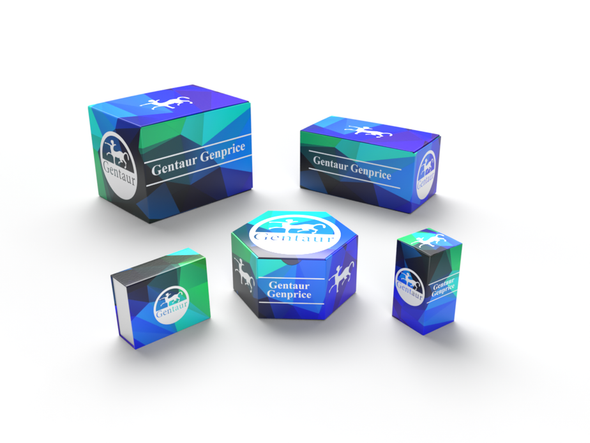740
Human Angiostatin (ANG) ELISA Kit | AE63161HU
- SKU:
- 740-AE63161HU
- Availability:
- Usually ships in 5 working days
Description
Human Angiostatin (ANG) ELISA Kit | AE63161HU | Gentaur UK, US & Europe Distribution
Species Reactivity: Human (Homo sapiens)
Abbreviation: ANG
Alternative Name: N/A
Application: ELISA
Range: 31.25-2000 pg/mL
Sensitivity: 13.5 pg/mL
Intra-Assay: ≤4.0%
Inter-Assay: ≤8.9%
Recovery: 0, 95
Sample Type: Serum, Plasma, Other biological fluids
Detection Method: Sandwich
Analysis Method : Quantitive
Test Principale: This assay employs a two-site sandwich ELISA to quantitate ANG in samples. An antibody specific for ANG has been pre-coated onto a microplate. Standards and samples are pipetted into the wells and anyANG present is bound by the immobilized antibody. After removing any unbound substances, a biotin-conjugated antibody specific for ANG is added to the wells. After washing, Streptavidin conjugated Horseradish Peroxidase (HRP) is added to the wells. Following a wash to remove any unbound avidin-enzyme reagent, a substrate solution is added to the wells and color develops in proportion to the amount of ANG bound in the initial step. The color development is stopped and the intensity of the color is measured.
Product Overview: Angiogenin (Ang) is a small polypeptide that is implicated in angiogenesis (formation of new blood vessels) in tumor growth . However, angiogenin is unique among the many proteins that are involved in angiogenesis in that it is also an enzyme with an amino acid sequence 33% identical to that of bovine pancreatic ribonuclease (RNase) A) .Moreover, although Ang has the same general catalytic properties as RNase A - it cleaves preferentially on the 3' side of pyrimidines and follows a transphosphorylation/hydrolysis mechanism - its activity differs markedly both in magnitude and in specificity.Although angiogenin contains counterparts for the key catalytic residues of bovine pancreatic RNase A, it cleaves standard RNase substrates 105 - 106 times less efficiently than does RNase A.
Stability: The stability of ELISA kit is determined by the loss rate of activity. The loss rate of this kit is less than 5% within the expiration date under appropriate storage condition. The loss rate was determined by accelerated thermal degradation test. Keep the kit at 37°C for 4 and 7 days, and compare O.D.values of the kit kept at 37°C with that of at recommended temperature. (referring from China Biological Products Standard, which was calculated by the Arrhenius equation. For ELISA kit, 4 days storage at 37°C can be considered as 6 months at 2 - 8°C, which means 7 days at 37°C equaling 12 months at 2 - 8°C) .






